Five Latino TikTokers traded 9-to-5s for a Hollywood Hills house. This is how they live
When she was growing up in New Jersey, Alexia Del Valle had a mural of the Hollywood sign on her bedroom wall. She dreamed of making it out to Los Angeles.
She doesn’t need paintings anymore. Now that she’s part of the Familia Fuego, an all-Latino TikTok collective living high in the Hollywood Hills, she can have the real deal whenever she wants.
“I got here and looked outside our window, and there’s the Hollywood sign,” said Del Valle, 23. “I literally was crying.”
A world-class view is one of the many perks that come with being part of the Familia. Del Valle moved into the group’s $2.2-million shared home last September. Ever since, she has been brainstorming ideas, collaborating on videos and advancing her budding entertainment career alongside four other young social media stars: Leo González, Monica Villa, Jesus Zapien and Isabella Ferregur. With the backing of DirecTV and the influencer marketing firm Whalar, the quintet have gone from working service industry day jobs to doing shots with Neil Patrick Harris, watching the Chargers alongside Roddy Ricch and living down the street from Quentin Tarantino.

Familia Fuego’s 2.2-million TikTok content house in the Hollywood Hills.
(Mariah Tauger / Los Angeles Times)
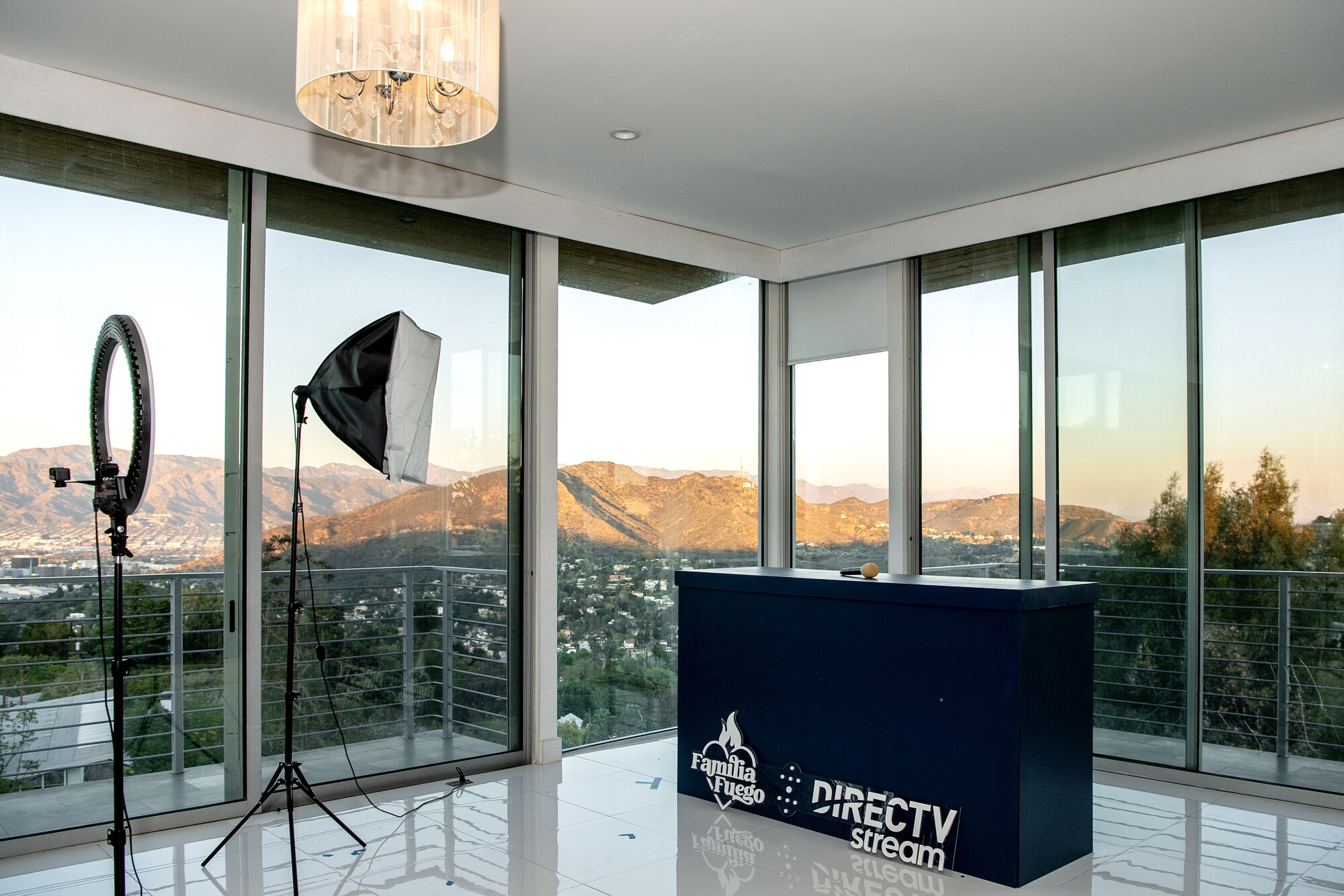
With the backing of DirecTV and the influencer marketing firm Whalar, the TikTok collective Familia Fuego has gone from working service industry day jobs to hanging out with celebrities.
(Mariah Tauger / Los Angeles Times)
As both Hollywood and the influencer economy wrestle with questions of diversity and representation, Familia Fuego is the rare project that’s unabashedly, wholeheartedly Latino. How many other influencers could get 50,000-plus likes on a video about pozole? That they’re based out of a city that’s nearly half Latino, but in an extravagantly wealthy neighborhood where that proportion is closer to 10%, further colors the uneasy task the TikTokers have of representing their heritage while also making inroads into historically white career fields.
“It’s definitely challenging” being a high-profile Latina influencer, said Del Valle, who’s of Puerto Rican descent and has 1.5 million followers on her personal TikTok account (the shared Familia Fuego page has another 127,000). “But it’s also special, because it’s giving us an opportunity to represent where we come from. It seems more rewarding, in a way. … We’re putting ourselves out there, and our people out there also.”
People often assume that influencers are all rich or have limitless resources, Del Valle added, but she doesn’t think she’d have been able to move to California without the help of Familia Fuego’s corporate sponsors. “People don’t see that we really came from humble backgrounds.”
Social media can sometimes be dominated by conspicuous displays of wealth: designer outfits, globe-trotting vacation selfies, Michelin-rated food porn. The Familia Fuego doesn’t entirely reject those signifiers — in some posts, they practice their red carpet struts or cross paths with celebrities — but they’re also more interested in “mocking the daily struggles” of service industry work, as Zapien puts it, than most influencers. A recurring sketch series in which they impersonate retail employees finds them wrangling nightmare customers and fighting over who gets the worst shifts. Other bits center around flaky co-workers, callous HR reps and overfamiliar recruiters.
It’s a perspective rooted in personal experience. Before the Fuego house, Zapien, 24 and Mexican American, worked at Walmart, Disneyland and then a bank. “I was super shy,” he said. “And then I was like, ‘I’m too broke to be shy.’”
Now he does TikTok full-time, while his sponsors support him with things such as studio space, housekeeping service and staple food deliveries: “It’s nice to get paid to do what you love.”
Del Valle worked at Disney World before graduating from college in 2020. Of all the TikTok collectives in L.A., Familia Fuego may have the highest proportion of members who can instinctively show you how to do a “Disney point,” the special hand gesture park employees have to learn.
The rest of the crew followed their own winding paths toward influencerdom. Villa, a 24-year-old Chicana, used to work at a catering company. Ferregur, 21 and from a mixed Mexican Cuban family, did boat rentals. González, 27 and also Mexican American, hoped to become a television reporter. He worked at broadcast stations across California and Nevada before a TikTok of him parodying a newscaster blew up and he decided that social media might be a “less traumatic” career.
“I’ve never been able to call myself an influencer,” González said when The Times spoke with him and the rest of the Familia. All five sat around the house’s dining room table; González had recently passed two million followers on his personal account, and they were celebrating over croquettes and guava pastelitos. “But after a content house, maybe you’re an influencer.”
“I still cringe,” Ferregur said. “I don’t call myself an influencer.”
“In Ubers, I always tell people I’m a freelance video editor,” González agreed.
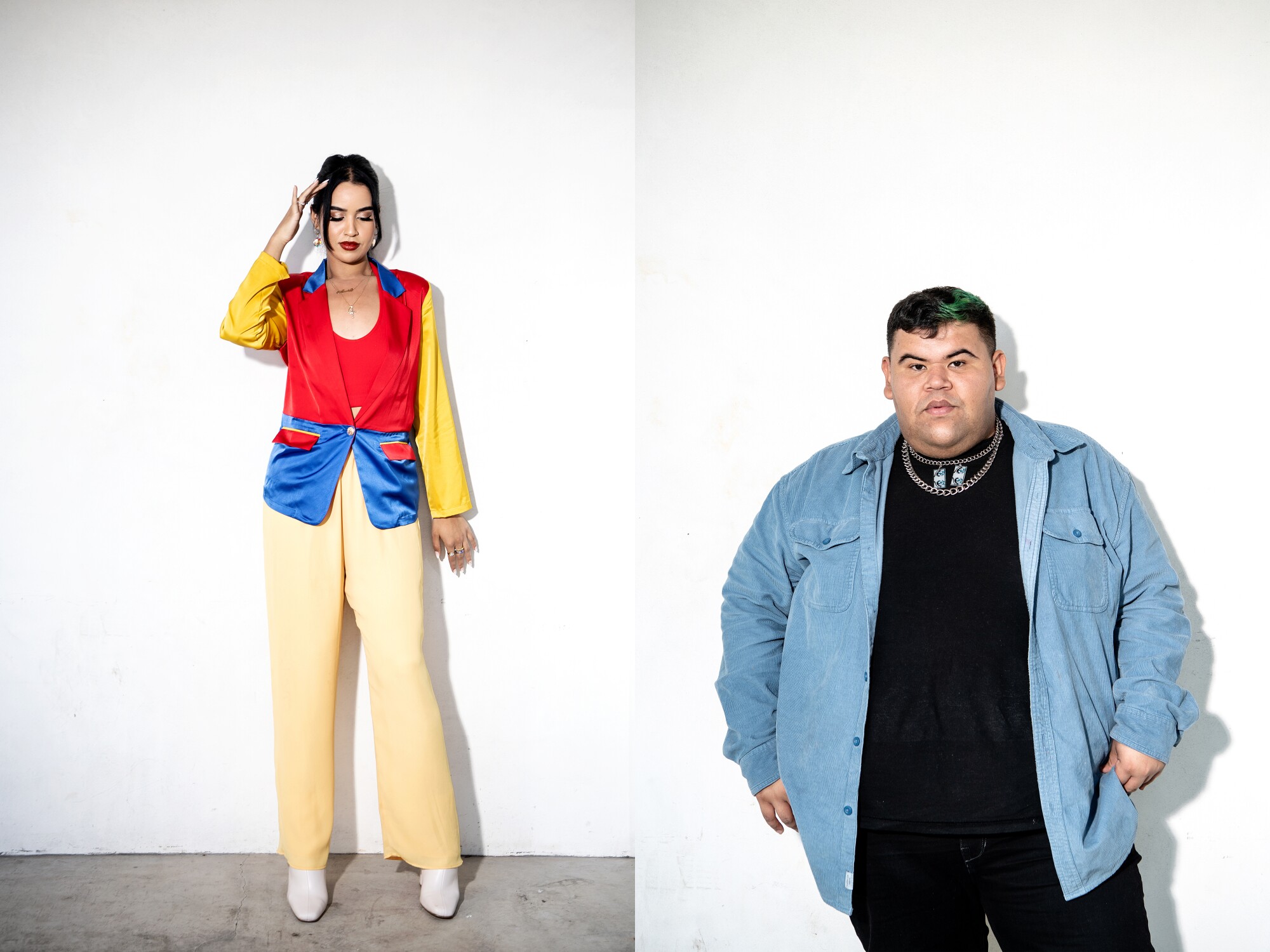
Before becoming TikTok creators, Alexia Del Valle, left, worked at Disney World in Florida and Jesus Zapien worked at Walmart, Disneyland and then a bank.
(Mariah Tauger / Los Angeles Times)
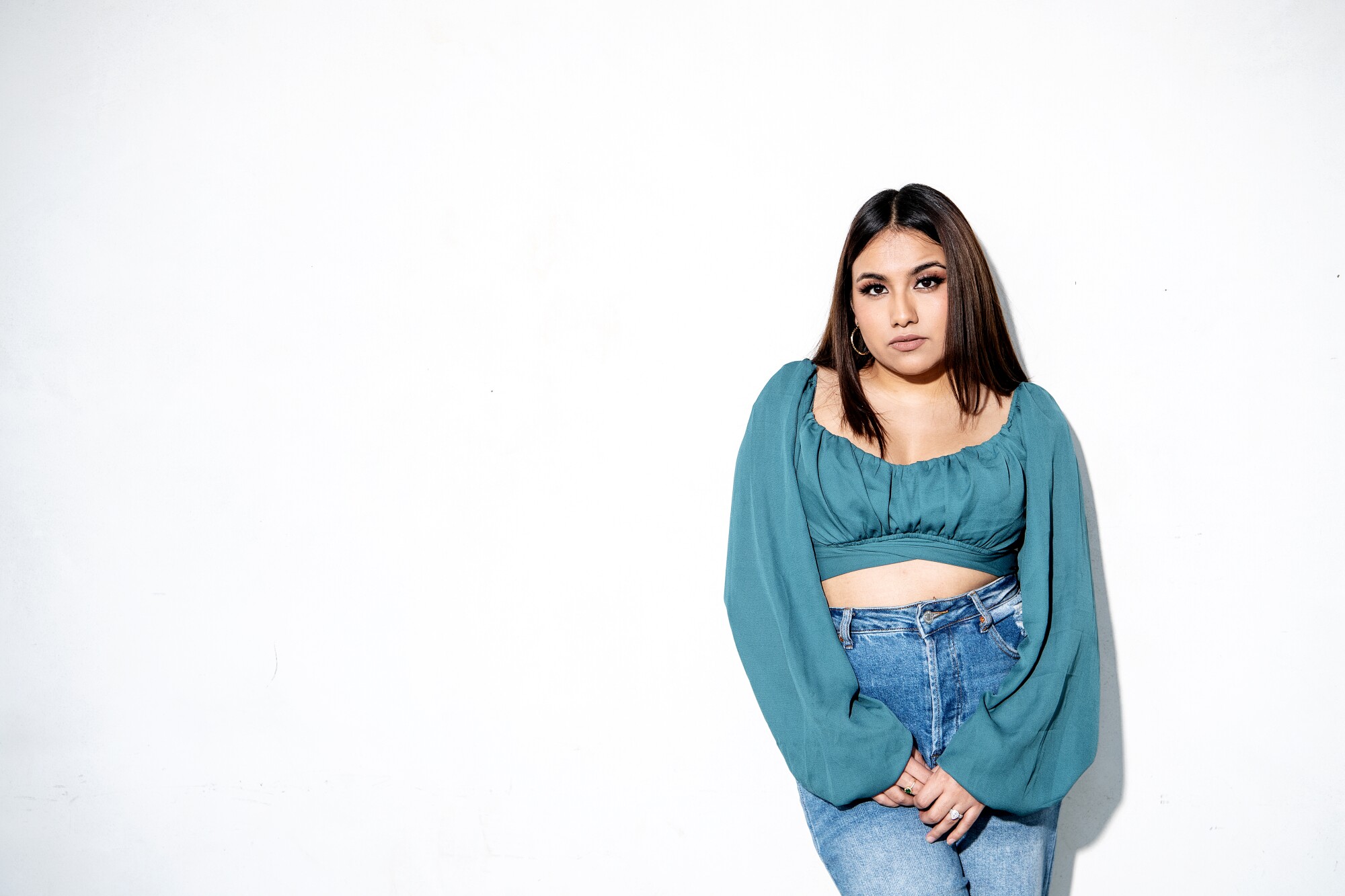
Monica Villa, a 24-year-old Chicana, used to work at a catering company before joining the TikTok collective Familia Fuego.
(Mariah Tauger / Los Angeles Times)
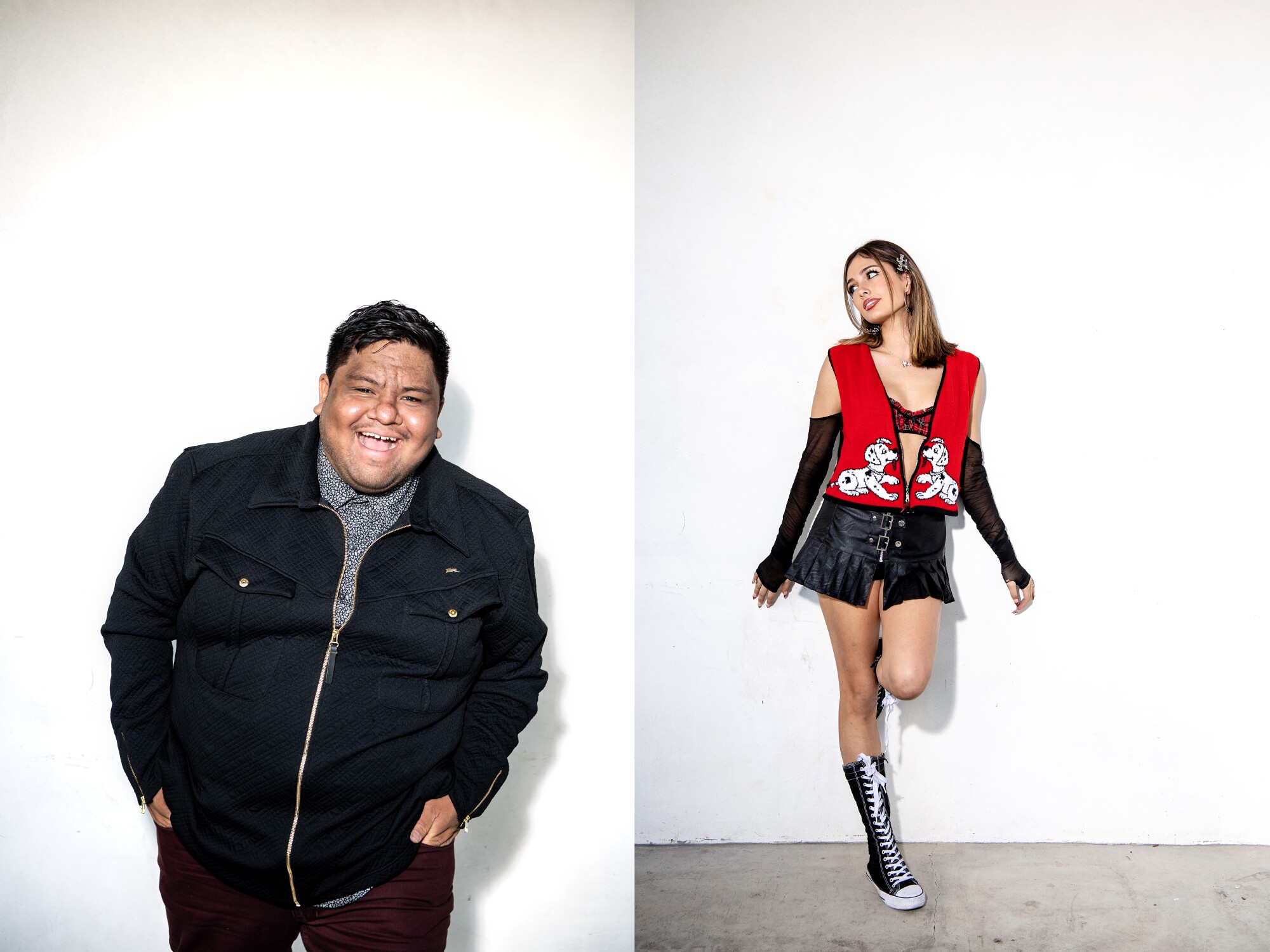
“I’ve never been able to call myself an influencer,” said TikToker Leo González, left. Isabella Ferregur echoed González: “I still cringe,” Ferregur said. “I don’t call myself an influencer.”
(Mariah Tauger / Los Angeles Times)
If the two are uneasy with their newfound celebrity, they aren’t alone. None of the members think of themselves as famous, Villa said: “We’ll still go to the store, and if someone’s looking at us we’re like, why are they looking at us?” She and others also said they sometimes struggle with self-doubt or imposter syndrome.
Being Latino in the public eye presents further challenges. Ferregur dealt with racist bullies while growing up in Carlsbad, but now online critics call her “whitewashed.” And Villa has struggled to find an audience for Spanish-language TikToks; she instead focuses on making English and bilingual ones.
“It’s a little harder for Latinos to actually grow if you’re not doing something super mainstream,” she said.
But their heritage has also made it easier for the Familia Fuego to bond with one another. TikTok content houses are common in L.A. — the most famous of them, the Hype House, recently became a Netflix show — but González said a lot of them feel weirdly inauthentic, superficial or careerist.
“They do their video, and then they’re just on their phone,” he said. “Here, we have talked about our fears and dreams. We’ve been vulnerable. We’ve cried together and prayed together.”
The difference, Villa and Zapien agreed, is that the Familia is built around a shared Latino identity every member can relate to.
Los Angeles is as good a place as any to do that. According to Brendan Nahmias, a manager at Whalar who helps oversee the house, all of the Familia members had enormous Angeleno followings even before they moved in together. Del Valle, the New Jerseyan, had a slightly larger following in New York; but the other four have always had their biggest fanbases in L.A., even when they weren’t living in the area.
“Our demo is here,” González said. “Whenever we go to any sort of public place where it’s Latinos … we all have people there who know us.”
The location also gives them easy access to Hollywood’s Latino elite. Members of the Familia have been able to collaborate with Eva Longoria; eat dinner, while starstruck, with Mexican comedy powerhouse Eugenio Derbez; and attend the premieres of Latino-centric projects such as “West Side Story” and “Gentefied.”
“When I was in high school, we had those fake Hollywood red carpets” at events such as homecoming, Del Valle said. “But to be on a real one was surreal.”
As full-time influencers, the Familia Fuego are doing what is a dream job for many Americans. It’s a dream that few people are able to realize, even as more and more money flows into the social media sector.
Were it not for DirecTV and Whalar recruiting them — via an email everyone initially assumed was a scam; “Don’t get too excited,” Ferregur’s parents warned her — the Familia members might not have been able to pull it off, either.
“I wanted [social media] to be my job, but it wasn’t, really,” Ferregur said. “It was very unstable. I was just taking things day by day; I wasn’t sure where it was gonna lead. But after coming into the house and being managed by [Nahmias] and Whalar, now it is a stable job.”
The Familia aren’t the first cohort to get that opportunity. Whalar previously ran an all-Black TikTok collective, The Crib Around the Corner, in partnership with DirecTV’s then-parent company AT&T. (Sinda Mitchel, a senior vice president at Whalar, declined to say whether a third house is in the works, or what demographic it might focus on were one to happen.)
But the houses aren’t charity projects. Both the all-Latino Familia and the all-Black Crib focused on fast-growing segments of DirecTV customers that are nevertheless “notoriously hard to reach through traditional channels,” chief marketing officer Vince Torres said in an emailed statement. The houses were “developed to give DirecTV the ability to reach them in an authentic way.”
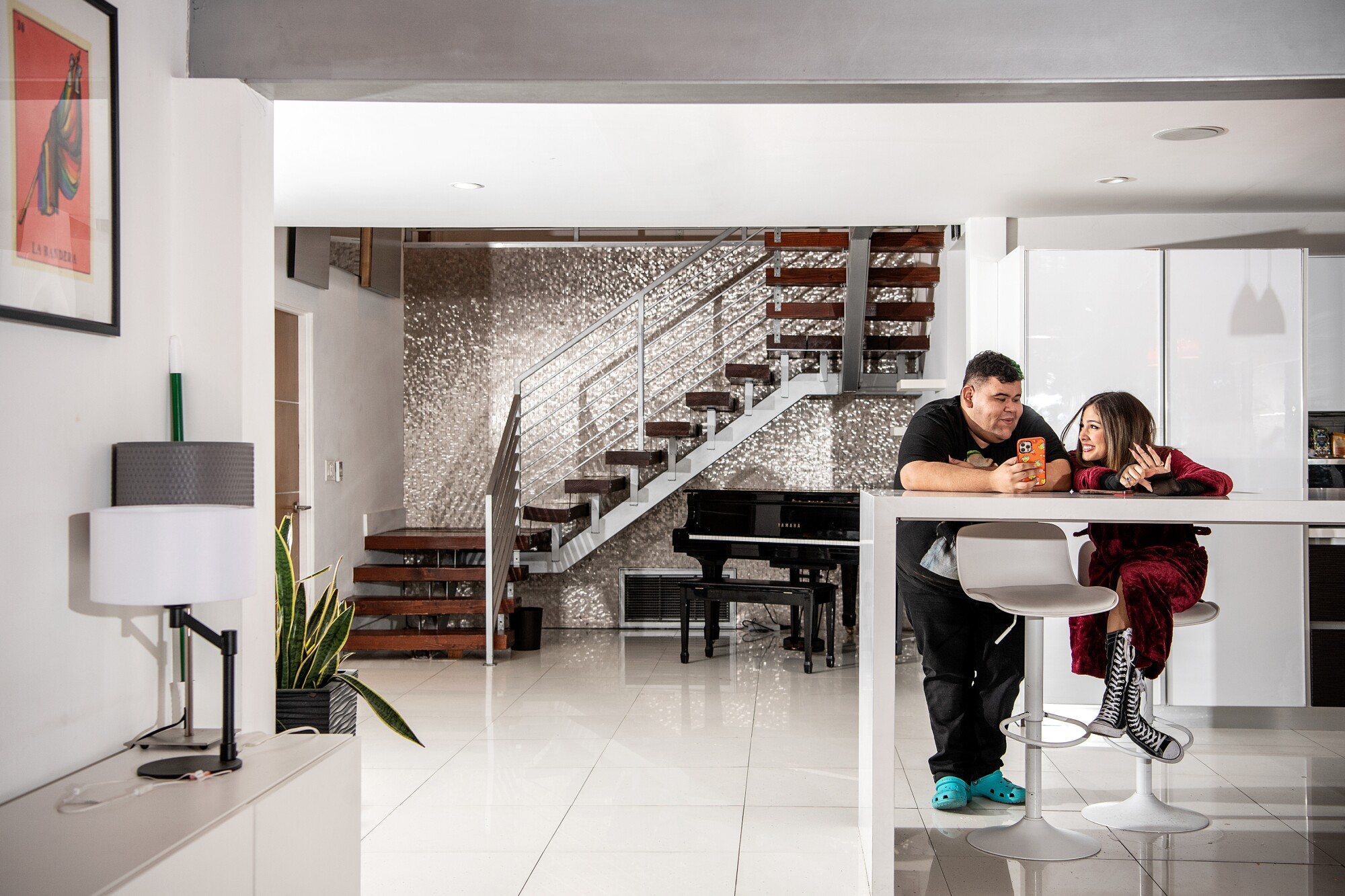
Before making TikToks with the Fuego Familia, Jesus Zapien, left, was shy. “And then I was like, ‘I’m too broke to be shy.’”
(Mariah Tauger / Los Angeles Times)
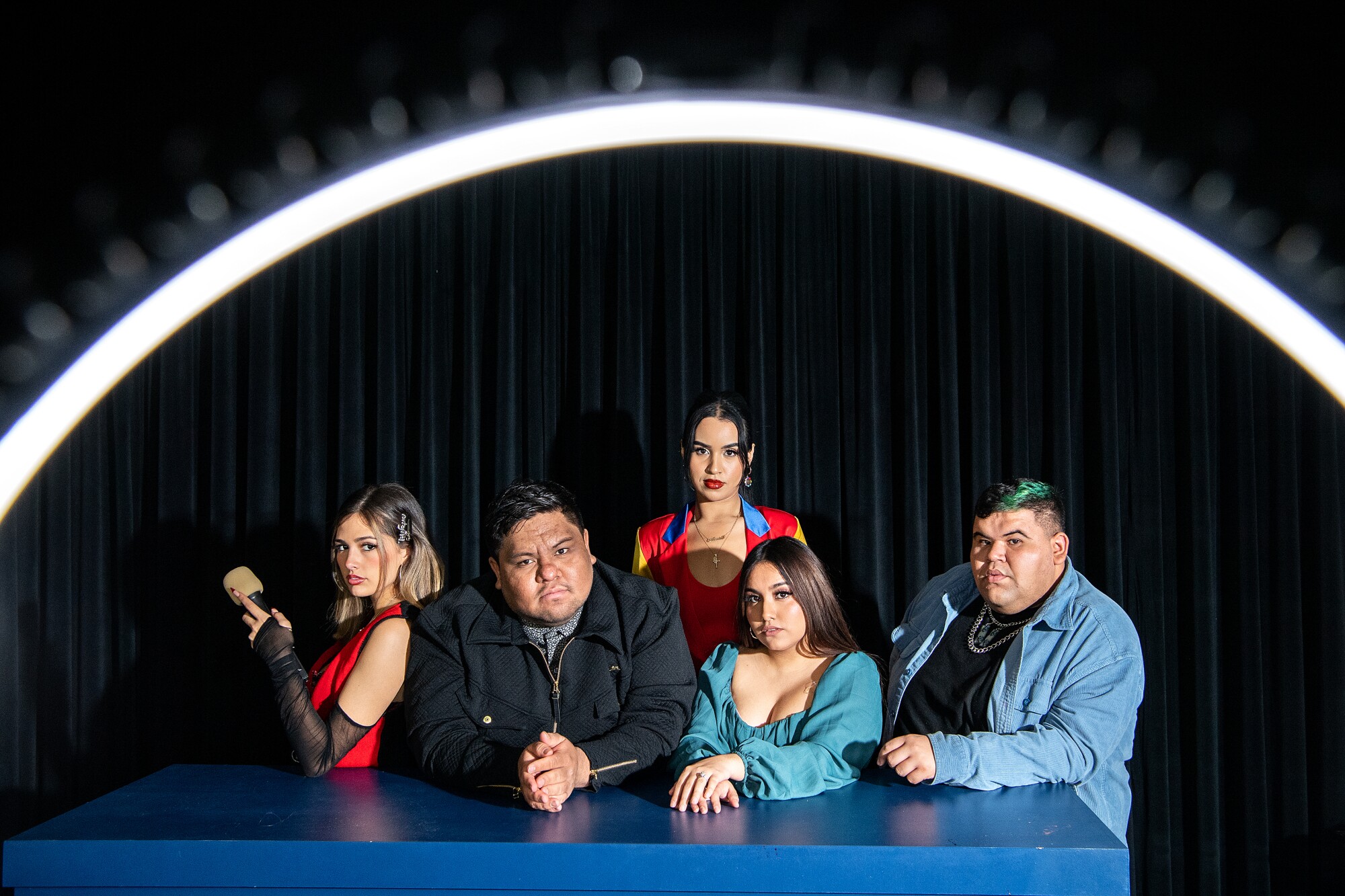
As full-time influencers, the Familia Fuego are doing what is a dream job for many Americans.
(Mariah Tauger / Los Angeles Times)
Aside from slightly more pressure to do good work, all five Fuego members had only positive things to say about their relationship with DirecTV and Whalar, and were optimistic that their time in the house would set them up for future success. The financial underpinnings of their role — free housing, food and travel stipends, production equipment, a studio and a paycheck, all in exchange for a fixed number of branded posts each month — seem as benign and equitable as they could hope for. And it’s easy to be enthusiastic about any effort to diversify the influencer landscape, which has been criticized for underrepresenting and underpaying creators of color.
“They’re not just doing a cute Hispanic Heritage Month commercial,” González said. “They’re literally funding the livelihoods of five creators.”
Yet it remains unclear whether this blend of patronage and boutique sponsorship could scale up to the point where it would make a real dent in the broader platform dynamics that still make financial independence a far-off dream for most aspiring influencers, Latino or otherwise.
“The creator economy needs a middle class,” venture capitalist Li Jin warned in 2020. Long-time social media creator Hank Green recently criticized TikTok for using a pay-out model untethered from corporate profits, making it hard for many users to earn a living. Even going repeatedly viral on the app isn’t always enough to break even.
Even if more companies took the same hands-on approach to finding and funding emerging talent that DirecTV and Whalar have, they’d still be tackling the problem at a rate of five TikTokers every six months. TikTok, meanwhile, reportedly has more than a billion users and grows larger by the day.
Though it might not be a systemic solution to creator income inequality, the Familia Fuego project has at least given each member an individual career boost. Now, with just a few weeks left in their residency, they’re looking to the future — and to opportunities beyond TikTok.
Segueing into more traditional film and television work is everyone’s “end goal,” Ferregur said. She and Del Valle also hope to get involved with the fashion and beauty industries; Villa and Zapien are more inclined toward music. González is currently working on a memoir.
But for the time being, TikTok is all of their main gig; and even if they see it as more of a stepping stone than a permanent position, it’s still a welcome alternative to what they were doing beforehand.
“I don’t expect for it to be forever — but if it can be, that’d be so nice,” González said. “It’s never felt like it could be a long-term thing, but right now it does.”
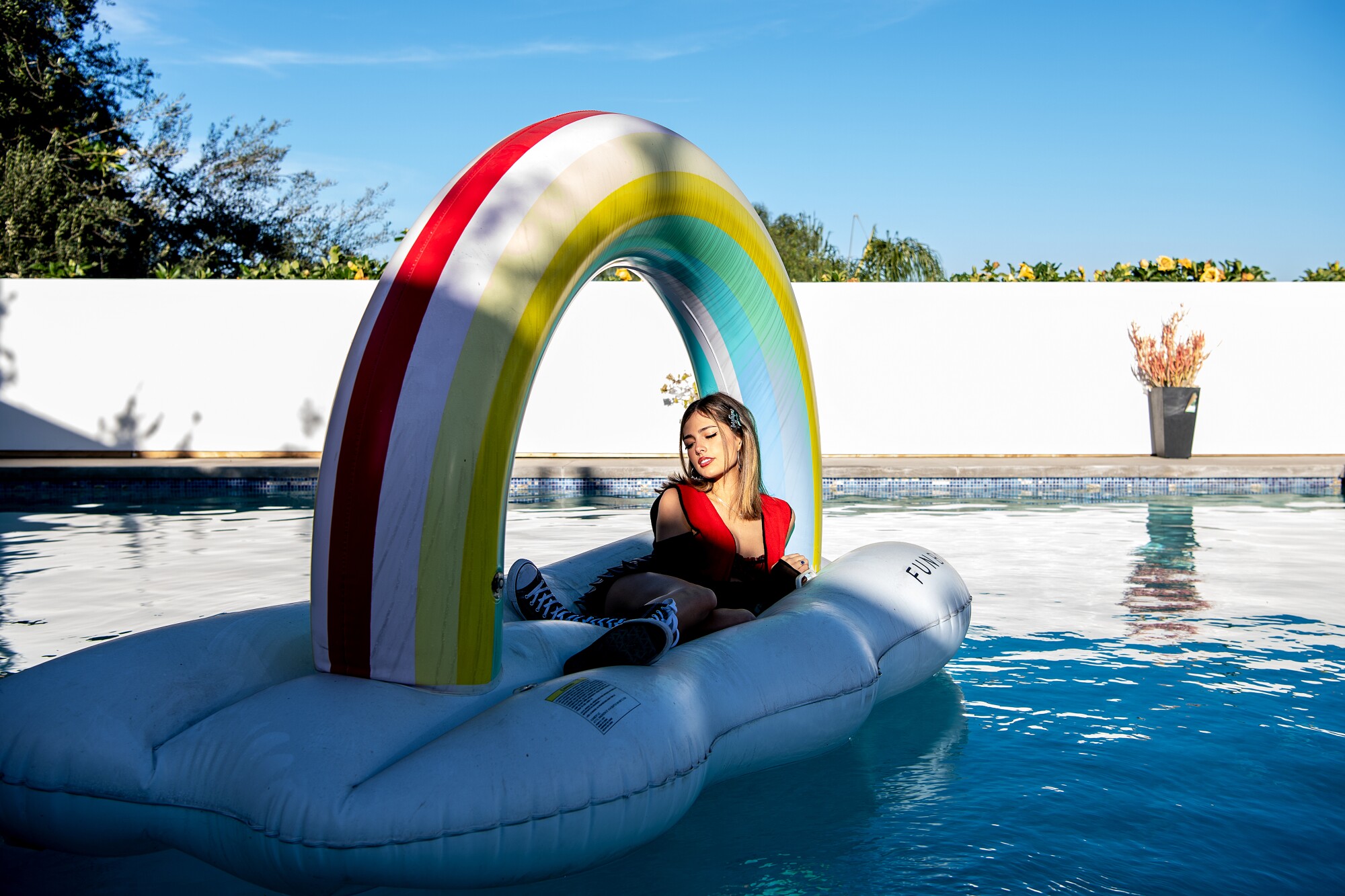
Isabella Ferregur hopes to segue into more traditional film and television work and get involved with the fashion and beauty industries.
(Mariah Tauger / Los Angeles Times)
For all the latest Business News Click Here
For the latest news and updates, follow us on Google News.
